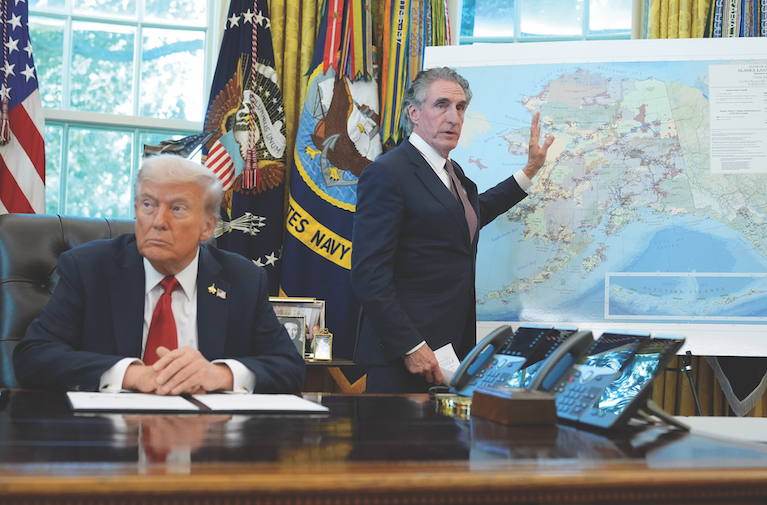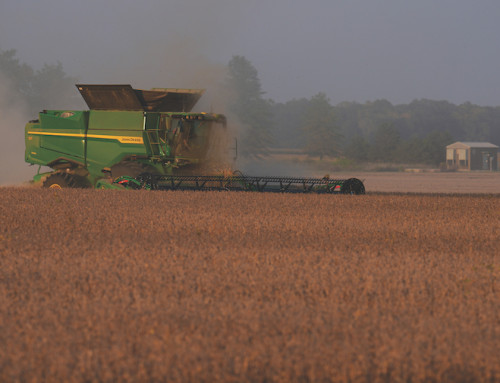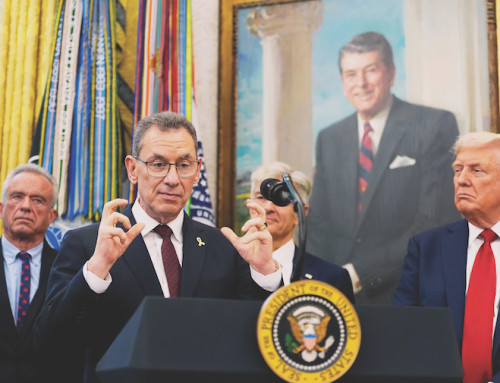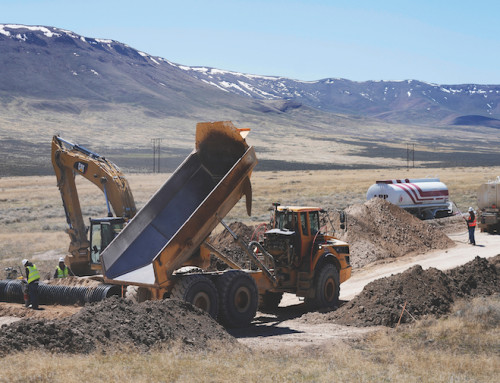WASHINGTON (AP) — President Donald Trump earlier this week ordered approval of a proposed 211-mile road through an Alaska wilderness to support the mining of copper, cobalt, gold and other minerals.
The long-debated Ambler Road project was approved in Trump’s first term, but was later blocked by the Biden administration after an analysis determined the project would threaten caribou and other wildlife and harm Alaska Native tribes that rely on hunting and fishing.
The gravel road and mining project, north of Fairbanks, Alaska, “is something that should’ve been long operating and making billions of dollars for our country and supplying a lot of energy and minerals,” Trump said at an Oval Office ceremony.
Former President Joe Biden “undid it and wasted a lot of time and a lot of money, a lot of effort. And now we’re starting again. And this time we have plenty of time to get it done,” Trump added.
In a related development, the White House announced it is taking 10 percent equity stake in Trilogy Metals, a Canadian company that is seeking to develop the Ambler site along with an Australian partner.
The federal government last week said it is taking a minority stake in Lithium Americas, another Canadian company that is developing one of the world’s largest lithium mines in Nevada.
The Department of Energy will take a 5 percent equity stake in the company and a 5 percent stake in the Thacker Pass lithium mining project, a joint venture with General Motors.
Interior Secretary Doug Burgum said approval of Ambler Road will unlock access to copper, cobalt and other critical minerals “that we need to win the AI arms race against China.”
Supporters, including Alaska’s congressional delegation, have said the road is needed to reach a large copper deposit worth more than $7 billion. Copper is used in production of cars, electronics and renewable-energy technologies such as wind turbines.
Opponents, including a consortium of 40 federally recognized tribes, are concerned that development allowed by the road would put subsistence harvests at risk because the lands include important habitat for salmon and caribou.
Karmen Monigold, an Inupiaq member of Protect the Kobuk, a Northwest Arctic advocacy group opposed to the access road, said she cried when she first learned of Trump’s actions.
“And then I reminded myself of who we are, and who our people are and how far we’ve come,’’ she said. “They tried to assimilate us, to wipe us out and yet we’re still here. We still matter.”
Monigold said she hopes Alaska Native groups will file lawsuits, as they’ve done before, to halt the project.
The two-lane gravel road includes about 26 miles that would cut through Gates of the Arctic National Park and Preserve.
The road would also cross 11 rivers and thousands of streams before reaching the site of a future mine.
The House of Representatives last month approved a bill that would pave the way for Trump to expand mining and drilling on public lands in Alaska and other states.
The vote would repeal land management plans adopted in the closing days of Biden’s administration that restricted development in large areas of Alaska, Montana and North Dakota.
Biden’s goal was in part to reduce emissions from the burning of fossil fuels extracted from federal land. Under Trump, Republicans are casting aside those concerns as they open more taxpayer-owned land to
development, hoping to create more jobs and revenue and boost fossil fuels such as coal, oil and natural gas.
The administration also has pushed to develop critical minerals, including copper, cobalt, gold and zinc.
While Trump has often said, “drill, baby, drill,” he also supports “mine, baby, mine,” Burgum said. “We’ve got to get back in the mining business.”
Trump’s order finds that the proposed road is in the public interest, given American needs for domestic critical minerals, and says there is no economically feasible alternative route.
The decision directs the federal Bureau of Land Management, National Park Service and U.S. Army Corps of Engineers to reissue necessary permits to construct the road.
Tristen Pattee, an Inupiaq who serves as an environmental technical supervisor at Red Dog zinc mine near Kotzebue, Alaska, said approval of the road is long overdue.
“I’m excited for the opportunities that are going to be coming in and all the jobs that will be created,’’ he said. “I look forward to them responsibly building the road and making sure it’s operated as permitted.”
Ambler Metals, a joint venture between Trilogy Metals and Australia-based South32, thanked Trump for jump-starting the Ambler project.
“This road will help secure the critical minerals our country needs for economic competitiveness and national defense, while also delivering meaningful benefits here at home,’’ said managing director Kaleb Froehlich.









